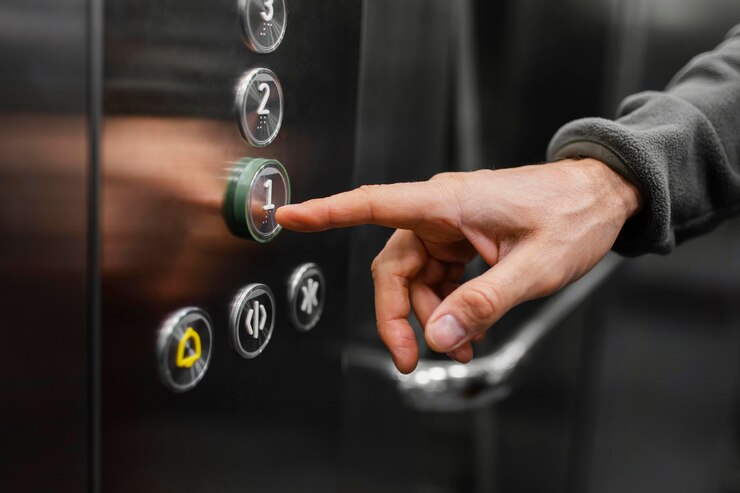
Home elevators are growing in popularity due to their accessibility, practicality, and subtle luxury. Whether you choose to add or construct a home elevator, make sure you do enough study before making a decision. Elevator installation includes diverse considerations, from space necessities to protection functions and customization options. In this blog, we’ll explore 12 essential inquiries to ask before installing a domestic lift in your home.
How Much Space is Required for the Installing Elevator in Home?
Space constraint is one of the number-one worries while putting in a home elevator. Domestic lifts are available in various sizes, and the space needed relies on elements including the type of elevator’s drive system, lifting capacity, and door design. SWIFT is uniquely compact from the drive system to the shaft and doors, in order to fit in almost all homes. Our smallest 3-person home elevator requires only 940×1425 mm.
Is It Possible to Install A New Elevator in An Old House?
Yes, installing a brand-new elevator in an old residence is feasible for some home elevator brands including SWIFT. However, retrofitting a domestic lift in an existing home might require careful planning and structural modifications. SWIFT´s experienced elevator installers can examine your property’s architecture and propose the feasibility and value-effectiveness of installing a home elevator.
Are Screw-Driven Lifts A Viable Option for My House?
Screw-driven lifts like SWIFT are popular as domestic elevators because of their compact design, “built-in shaft” and smooth operation. Unlike traditional hydraulic or traction systems, screw-driven lifts utilize a screw mechanism to move the elevator platform. They are appropriate for residential homes and can be custom-designed to fit diverse space constraints.
Ask for Examples of Different Brand´s Previous Installations
Before selecting your home elevator product and brand, ask for references or case studies of past completed projects. This will give an understanding of the installers´ skills and the quality of the product.
Which Home Elevator Type Is Best for My Property?
There are different types of home elevators including screw-driven types like SWIFT, traction, hydraulic, or pneumatic solutions. The type for your home relies upon elements consisting of space constraints, budget, safety, and personal design liking. SWIFT´s experienced staff can examine your desires and advise you on the most suitable option for your private home.

What Safety Features Are Included In Domestic Lifts?
Ensuring safety is paramount when it comes to domestic elevators. Make sure to inquire about all safety features and the product’s safety and quality certifications. SWIFT is certified for quality and safety according to the highest standards of the European Machinery Directive EN81-41. This certification encompasses an emergency stop button, a two-way communication system, various fatigue and longevity tests, safety edges, battery backup, and much more.
What Makes Screw-Driven Elevators Apart from Other Types of Lifts?
Screw-driven lifts offer benefits compared to hydraulic or traction systems. They are compact, require minimum renovation, and function quietly, making them ideal for residential use. Additionally, screw-driven lifts are cost-effective and may be paired up without a system room, saving treasured space in your home.
Can Home Elevators Be Customized to Suit My Preferences?
Yes, domestic elevators may be customized to fit your options and supplement your home’s decor. From cab finishes and light options to door styles and control panels, various customization alternatives are available. Develop a plan of action with your elevator specialist that realizes your idea and improves the look of your own house.
What Is the Carrying Capacity of a Home Elevator?
The capacity to weigh a home elevator varies based on its size and construction. Standard residential elevators have a wearing capability ranging from 250 to 1.000 kg. SWIFT´s professionals can primarily advise you on the right carrying ability based on your wishes.

How Long Does Home Lift Installation Take?
The period for installing elevator depends on different factors, which include the type of elevator, the complexity of the setup, and any vital structural changes. On average, home elevator installation can take days to a few weeks to complete. SWIFT´s “all-inclusive modular based” solution normally takes 3-5 days.
Are Domestic Lifts Energy-Efficient?
Yes, newer generations of home lifts like SWIFT are engineered to be energy-efficient, featuring modern designs that incorporate energy-saving capabilities such as LED lighting fixtures, regenerative drives, and motor systems. SWIFT’s unique 100% battery-driven solution efficiently captures energy generated during downward travel, directing it back to the batteries, thus maximizing energy efficiency. By minimizing power consumption, this domestic elevator not only reduces your carbon footprint but also decreases utility charges over time.
How Often Do I Need to Service My Home Elevator?
Regular maintenance ensures your home elevator’s straightforward and dependable operation. Most manufacturers propose scheduling ordinary checks at least once yearly to check out components, lubricate moving components, and deal with any ability issues. Your elevator expert can guide the encouraged renovation agenda in your specific lift model.
Plan Your Lift Installation With SWIFT
Deciding on the proper professional is vital to install elevator in house. At SWIFT, we specialize in domestic lifts and have the understanding and knowledge to guide you through each step of the installation method. From selecting the correct lift to customizing it, we’re here to help you increase your experience.
FAQs
The value of a home elevator varies depending on elements, which include the type of lift, customization alternatives, and installation complexity. Your elevator expert can provide a customized quote for your particular needs.
A domestic elevator’s electricity consumption relies upon elements including utilization frequency, lift size, and power-saving capabilities. On average, domestic lifts use between one thousand to 2000 watts of energy per hour.
Elevator warranties typically provide coverage for one to five years against material and workmanship problems. SWIFT offers 5 years for the lift and 10 years for the drive system. It’s imperative that you thoroughly study the assurance terms to understand what is and isn’t covered.
A reputable elevator corporation must provide notable customer service, prompt responses to inquiries, clear communication, and reliable help during the setup upkeep process. Look for organizations with excellent critiques and a track record of client satisfaction.
Home lifts are designed and manufactured to satisfy rigorous safety and high-quality requirements, ensuring dependable overall performance and sturdiness. With proper protection and care, domestic elevators can provide years of trouble-free operation for house owners.
Get In Touch










